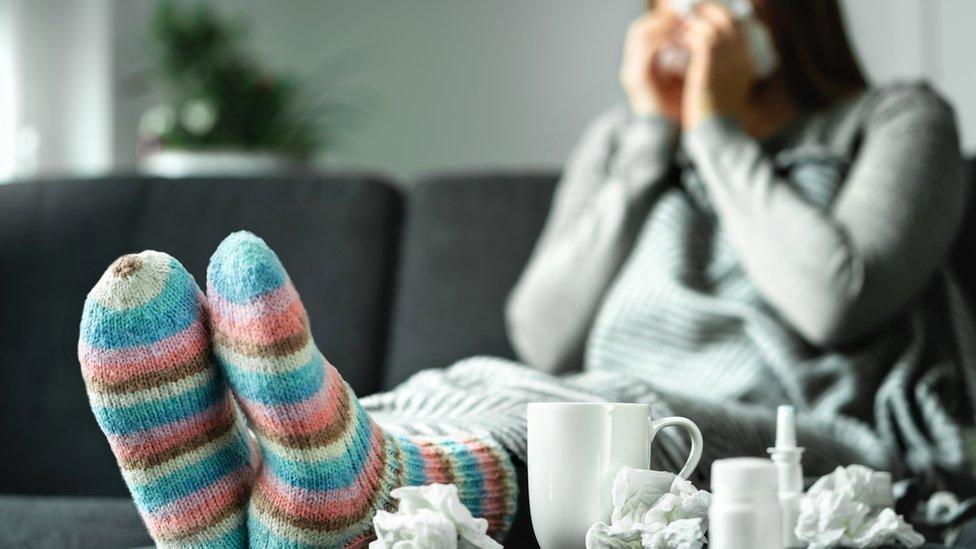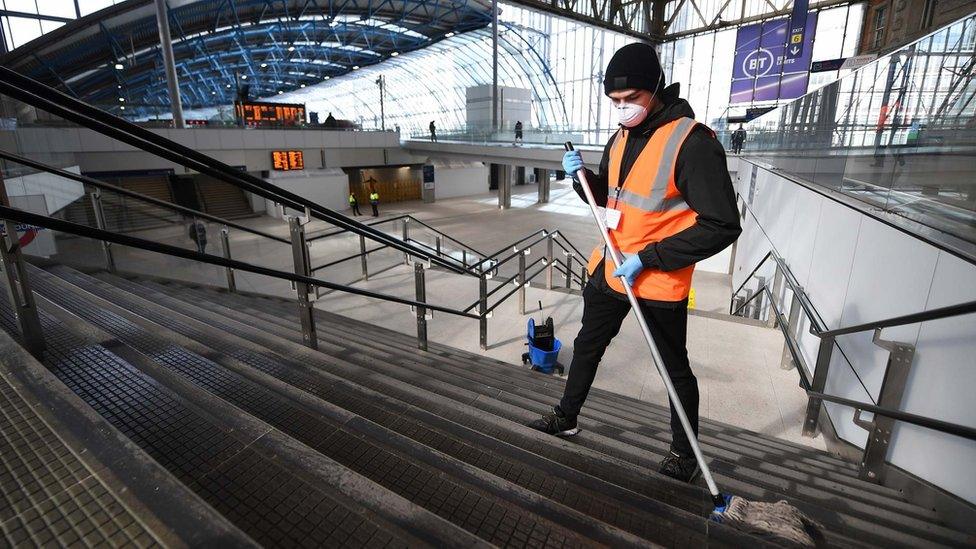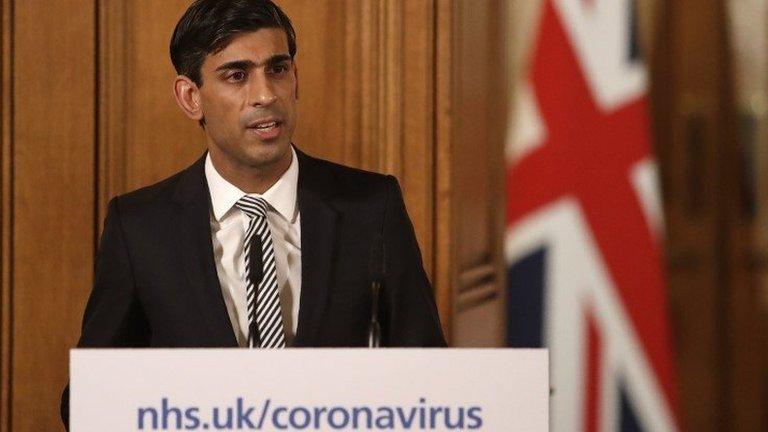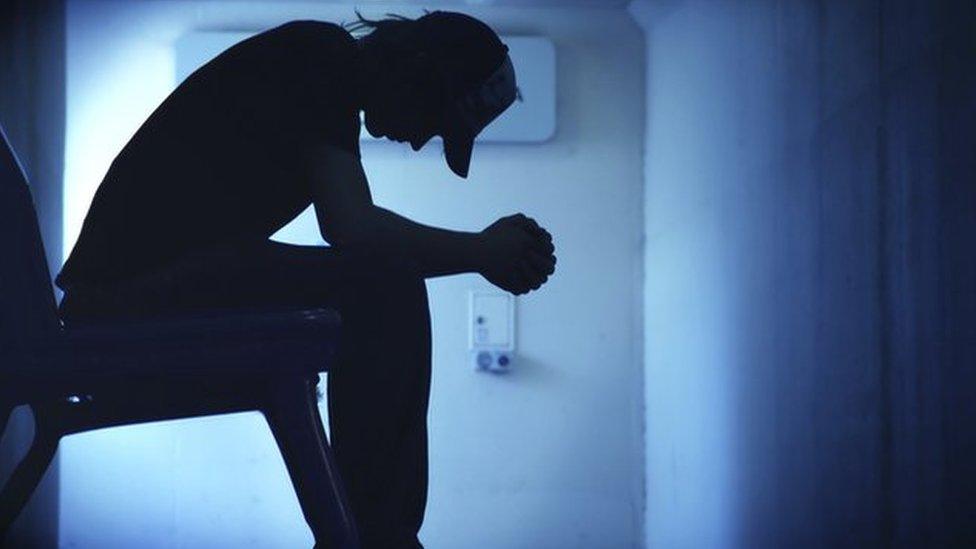Coronavirus in Wales: What is the help for businesses?
- Published

There are 267,000 businesses in Wales and more than a third of these are micro-enterprises with fewer than nine people working for them.
And there are nearly 211,000 people who are self-employed.
Many are anxiously looking at what help is available to deal with the impact of coronavirus.
So, what steps are being taken in Wales to ensure this important area of the economy is supported in the weeks and months ahead?
What about business rates to help with the impact of coronavirus?
The Welsh Government is matching the business support package offered by the UK government to give a business rates "holiday" for a year for those in the retail, leisure and hospitality businesses.
But a grant of £25,000 will also be offered for businesses in these areas with a rateable value of between £12,001 and £51,000. Those who qualify won't need to do anything as it will be administered through the business rate scheme.
Those small businesses with a rateable value of under £12,000 will also be eligible for a £10,000 grant.
The whole package is worth £1.4bn. Retailers in Wales called it a bold move and a "vital shot in the arm", and the Federation of Small Business in Wales said it was a step towards a safety net and it expects them to be available very quickly.

What about help with wages?
Welsh ministers want the UK government to offer a National Insurance (NI) "holiday" and help for wages, so businesses can "hibernate" if necessary and guarantee a basic income for workers.
The Institute of Fiscal Studies think-tank has already suggested that, to protect jobs, a package of support could include cutting NI and increased help for workers through Universal Credit.
Meanwhile, the employers' organisation CBI Wales has urged UK and Welsh ministers to adopt a system used in Germany where the state pays 65% of the wages of workers and the employer pays the rest.
It argues the scheme - known as Kurzarbeit or "short-time working" - avoids redundancies and allows for a quicker recovery as businesses keep skilled workers in jobs.
There would be a significant cost but CBI Wales says it would save money longer term as people would remain in work rather than becoming unemployed.
What about workers off sick?
The Treasury says businesses with fewer than 250 staff would be able to claim back from the UK government two weeks of statutory sick pay (SSP - £94.25 per week) paid to staff affected by coronavirus - either sick or told to self isolate.

What if I'm self-employed?
About 17% of the Welsh workforce are self-employed.
Chancellor Rishi Sunak announced on 27 March that self-employed people facing financial difficulties would be able to have 80% of their monthly wages covered by the UK government.
The money, back-dated, would be available in June to those established people who had filed tax returns this year.
Wales' Economy Minister Ken Skates welcomed the news, adding: "Of course, details are emerging about how the scheme will operate and we will be looking very closely at what gaps there are that individuals may fall through."
He also said the Welsh government would also be looking at how the "cross-sector, cross-government fund" would match "seamlessly" with the support announced by the chancellor.
The Federation of Small Business in Wales said it hoped the Welsh government would be able to plug some of the gaps in support.
See more here: What help will self-employed get from government?
What about loans if I'm in business?
A temporary business interruption loan scheme will be launched by the UK government within weeks and be available to Welsh businesses, delivered by the British Business Bank - the state-owned development bank set up in 2014 - to access bank lending and overdrafts.
Meanwhile, the Development Bank for Wales is also offering support and has already made available a three-month payment holiday for its 1,000 customers.
- Published3 March 2021

- Published29 May 2020

- Published17 March 2020

- Published17 March 2020

- Published17 March 2020

- Published19 March 2020

- Published18 March 2020

- Published17 March 2020

- Published19 March 2020

- Published19 March 2020
